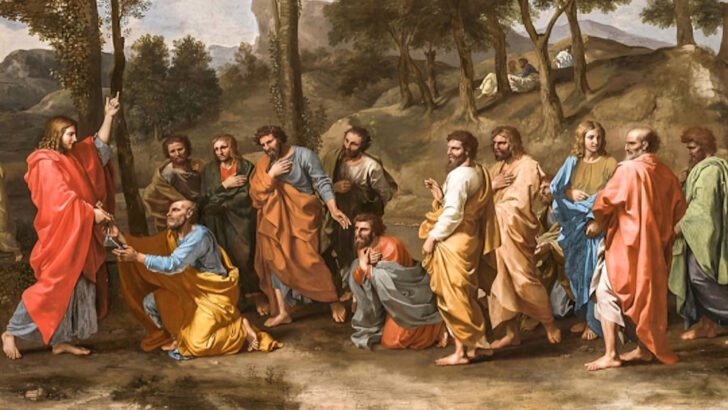In the second book of his Dialogues, Pope Gregory the Great tells of the holiness of St Benedict, whose memorial is celebrated on the 11th day of July. We learn that Benedict lived for three years in Subiaco, some 40 miles outside of Rome. He fled the ancient city that was self-destructing in its moral decay and chose instead a life of detachment from worldly goods. Benedict lived a life of prayer, solitude and poverty focused on God that served as the spiritual foundation of monastic communities dedicated to “ora et labora,” prayer and work.
Civilsation
Overtime, Benedictine monasteries, described by their founder as “a school for the Lord’s service,” would transform Western civilisation with the light of the Gospel lived in prayer, manual labour, learning and detachment from the world. The Rule of St Benedict laid the foundations for the evangelisation of Europe and the flowering of medieval Christianity.
To serve Jesus required complete detachment from the world”
In this Sunday’s Gospel, Jesus calls the Twelve Apostles and begins to send them out two by two. This was a key moment for the disciples, as their life with Jesus is transformed into their vocation. It is the moment when the disciples become apostles, sent by Jesus to continue his ministry of teaching, healing and self-giving love. To serve Jesus required complete detachment from the world.
Reflecting
As Jesus sent his disciples out, he gave them instructions that are worth reflecting on as we ponder the word of God today. Jesus tells his disciples to take nothing for the journey, except a walking stick and sandals. They were not to take food, sack, money or even a second tunic!
To serve the Lord as his missionary disciple demands complete dependence on God”
Jesus’ words must have surprised his disciples. To take nothing on a journey is counterintuitive. But the radical poverty that Jesus asks of his disciples makes sense only in light of the great mission he is calling them to. To serve the Lord as his missionary disciple demands complete dependence on God.
A disciple is called to trust that God’s providential love provides for the journey. Rather than being concerned with and distracted by the demands of material possessions, a disciple of Jesus fixes his or her gaze on the mission of sharing the life-giving message of the Gospel with those in physical and spiritual need.
The saints of the Christian tradition show that it is possible to live for union with God, in radical detachment from the cares and possessions of this world. Like the disciples, we too are called to forms of detachment, suited to our state in life, as we depend on God to whom we pray, “Speak to me, Lord.”
Question: What are you called to be detached from as a disciple of Jesus?
*
Jem Sullivan holds a doctorate in religious education and is an associate professor of catechetics in the School of Theology and Religious Studies at The Catholic University of America in Washington.


 Nicolas Poussin. Photo: Public Domain
Nicolas Poussin. Photo: Public Domain 